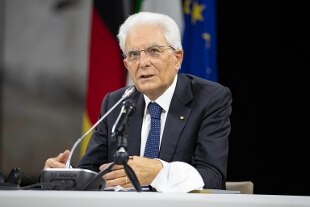Sergio Mattarella (Ansa)
Share
01 October 2020Today is the International Day of the Elderly, approved by the General Assembly of the United Nations thirty years ago to bring to the attention of States and public opinions the issue of the aging of the population, with the need for assistance and care that it brings with it, but also with all the potential that the more mature generations can express in favor of the community.
The President of the Republic Sergio Mattarella invites us to reflect on the meaning of this day in the light of the pandemic that has mainly affected the elderly, "breaking lives and affections, highlighting the fragility of their health, forcing them in many cases to isolation and, therefore, at a risk of serious marginalization and discrimination ".
"All communities need the contribution of different generations - said the President -. Each generation has an indispensable contribution to bring to the common good. With dismay, in recent months, we have witnessed the suffering and death of so many elderly people . And where the spread of the virus has been wider or where the conditions of poverty were more critical, the agony has been even greater. The composition of the world population is changing rapidly. The increase in the average age and the prolongation of life are social transformations among the most significant on a global level. The great challenge against hunger and poverty passes from the ability to face the demographic question with a sense of humanity and a spirit of cooperation ".
"The quality of our own model of community and development", continues Mattarella, "also depends on how we will be able to guarantee the rights and services to older citizens and how we will be able to integrate them into social processes, pressured by very fast but always in need of dialogue and solidarity. Many times it is the elderly who teach us respect for values, remind us of our roots, show us the path of dignity, dedication, generosity. Their example in this difficult time is an extraordinary heritage that does not we must and do not want to disperse ", he concludes.

